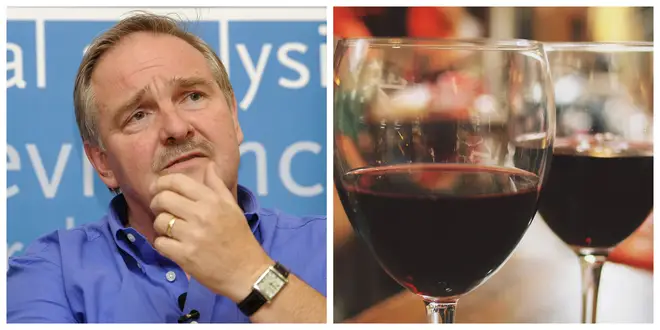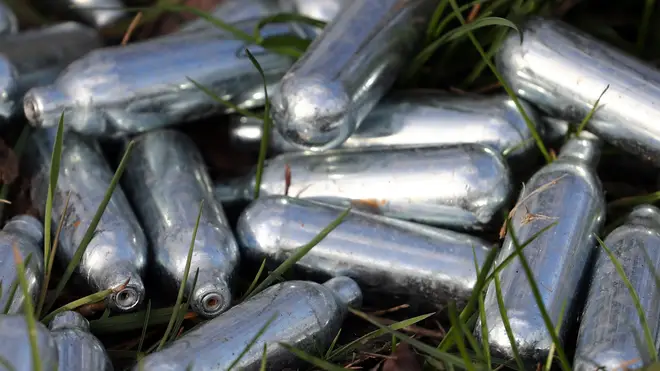
Ian Payne 4am - 7am
16 January 2020, 16:01

A former drug tsar has branded alcohol as “the most damaging drug people can take,” with much-maligned laughing gas far less toxic or addictive.
Professor David Nutt was sacked as the government's chief drug adviser, a day after claiming that ecstasy and LSD were less dangerous than alcohol.
He stands by that claim, saying "alcohol is the most damaging drug in pretty much every Western country".
Prof Nutt said one thing that has become "very clear" over the last 10 years is that "there has been absolutely no action whatsoever on the fact alcohol is the most harmful drug".
As the revised second edition of his book Drugs Without The Hot Air is published, he said: "Every family in Britain is damaged to some extent by alcohol. If not in terms of physical or psychological damage, then in terms of the financial damage that excess drinking causes."

The chair of Drug Science said there was a continued attempt to undermine the harm of alcohol by saying it has health benefits.
But, he argued, any health gains from alcohol are limited to consumption of 5g of alcohol per day - the equivalent of sharing one 175ml glass of wine between three people.
Prof Nutt also said nitrous oxide - known as laughing gas and sometimes hippy crack - is a "great British discovery" used for pain, such as in childbirth.
He said the drug is fun "without the risks of alcohol", adding: "It's effect is over in a few minutes - you're perfectly safe, you can go back home, you can drive, you're not going to be mugged, you're not going to have a hangover."
Laughing gas represents "a logical alternative to alcohol for those people who don't want to be impaired and it's less toxic and less addictive", he added.
However, the supply of nitrous oxide for recreational purposes is illegal, while alcohol remains legal.
Justice Secretary Robert Buckland defended the ban on LBC and warned against giving the public a mixed picture over the safety of drugs.
He said: "With these conflicting messages, particularly young people, perhaps get the wrong signals from those in authority, and giving the wrong signals about dangerous drugs could lead to people's lives being put at risk.
"My message as the Justice Secretary is: it's an illegal, dangerous drug and there's plenty of evidence to suggest it is harmful to health and indeed life, and there's a very good reason why that type of drug is prohibited and banned."
Prof Nutt is calling for drug policy to be moved from the control of the Home Office to the Department of Health, for widespread drug testing and for regulated access to drugs less harmful to users than alcohol.
A spokesman for the Alcohol Information Partnership, which is funded by the alcohol industry, said: "Prof Nutt's focus on the effects of harmful drinking should not be allowed to detract from the fact that, as evidenced by the latest Government figures, our relationship with alcohol has changed significantly over recent years, with the vast majority of UK citizens drinking alcohol within the recommended guidelines."
A Government spokeswoman said: "The Government has no plans to decriminalise drug possession.
"We have commissioned a major review of drug misuse including looking at who drug users are, what they are taking and how often, to build the most in-depth and comprehensive picture of this issue to date."